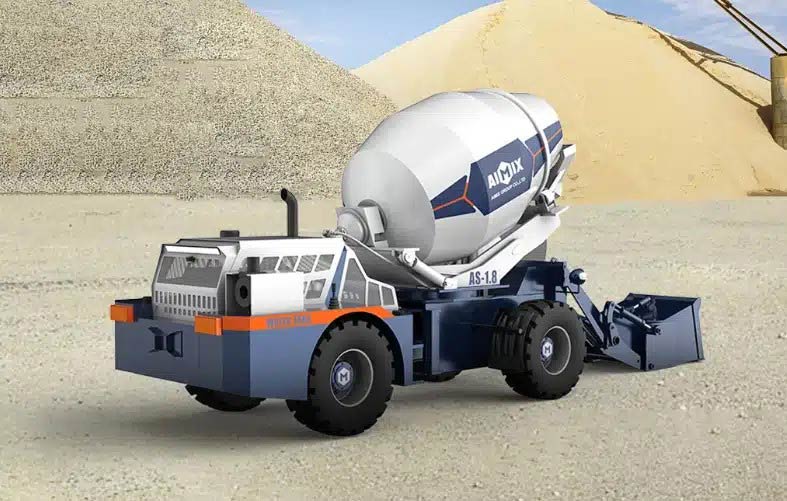
In large and medium-sized construction projects, the choice of concrete mixing equipment directly impacts construction efficiency and project quality. This article conducts an in - depth comparison between two mainstream types of equipment: self - loading concrete mixers and stationary mixing plants, aiming to help project managers make scientific and reasonable equipment selection decisions.
When selecting concrete mixing equipment, several factors need to be considered. First, the required concrete output is crucial. For large - scale projects, a high - output device is essential. Second, the quality of the concrete produced also matters, as it directly affects the strength and durability of the building. Third, the construction site environment, such as space limitations and terrain conditions, will also influence the choice of equipment.
Stationary mixing plants are well - known for their large - scale production capacity. They can produce a large amount of concrete in a short time, with an average hourly output of about 30 - 100 cubic meters. For example, in a large - scale infrastructure project like a high - speed railway station construction, a stationary mixing plant can continuously supply a large amount of concrete to meet the project's needs. However, stationary mixing plants have some limitations. They require a large and stable construction site for installation, and the transportation of concrete from the plant to the construction site may cause delays and affect the quality of the concrete.

Self - loading concrete mixers, represented by AIMIX AS - 5.5 of Henan Guoli Micosi Technology Co., Ltd., have unique advantages. The AIMIX AS - 5.5 has a large capacity of 5.5 cubic meters and can produce up to 22 cubic meters of concrete per hour. This high - output performance can well meet the continuous and efficient construction requirements of medium - and large - scale projects.
One of the significant advantages of self - loading concrete mixers is their flexibility. They can directly drive to the construction site and carry out on - site mixing, eliminating the need for long - distance transportation of concrete. For example, in a mountainous area construction project where the terrain is complex and the construction site is scattered, a self - loading concrete mixer can move freely between different construction points, greatly improving construction efficiency.
In addition, the AIMIX AS - 5.5 uses advanced mixing technology, which can ensure the uniform mixing of concrete and improve the quality of the concrete. The mixer can automatically complete the processes of feeding, mixing, and discharging, reducing labor costs and human errors.

| Features | Self - Loading Concrete Mixers | Stationary Mixing Plants |
|---|---|---|
| Output per hour | Up to 22 cubic meters | 30 - 100 cubic meters |
| Flexibility | High, can move freely on the construction site | Low, requires a fixed installation site |
| Concrete Transportation | On - site mixing, no long - distance transportation | Need to transport concrete to the construction site |
| Installation Cost | Low, no need for large - scale installation | High, requires a large - scale installation and foundation construction |
In conclusion, both self - loading concrete mixers and stationary mixing plants have their own advantages and disadvantages. For large - scale projects with a large and stable construction site, a stationary mixing plant may be a good choice. However, for medium - and large - scale projects with complex construction site environments and scattered construction points, a self - loading concrete mixer like the AIMIX AS - 5.5 is more suitable.
Henan Guoli Micosi Technology Co., Ltd.'s AIMIX AS - 5.5 self - loading concrete mixer is certified by multiple international standards, ensuring its high quality and reliability. If you are still hesitating about which concrete mixing equipment to choose for your project, don't miss this opportunity! Click here to learn more about the AIMIX AS - 5.5 and make the best decision for your project!
We encourage you to leave your questions and thoughts in the comments section below. Our experts will be happy to answer them!

